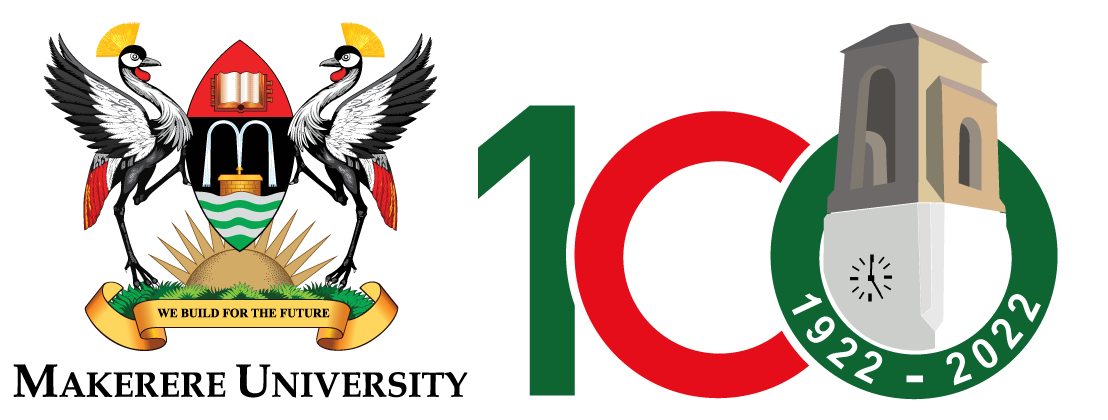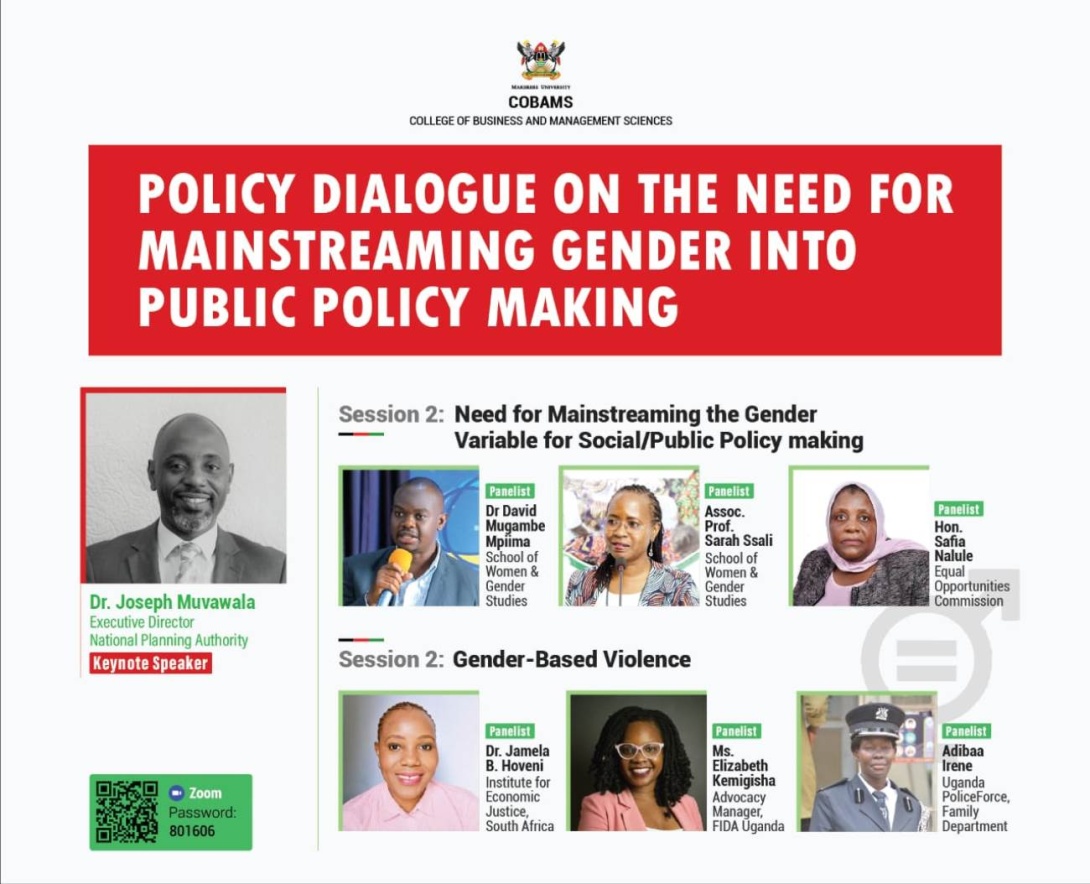The College of Business and Management Sciences (CoBAMS) invites you to a policy dialogue on mainstreaming Gender into public policy making.
Topic: The Rationale for Mainstreaming the gender variable into social and public policy making
Date and Time: Tuesday 21st May, 2024 at 2:00 PM EAT.
Keynote Speaker: Dr. Joseph Muvawala, Executive Director, National Planning Authority.
Panelists:
- Dr. David Mugambe Mpiima, School of Women and Gender Studies, Makerere University
- Assoc. Prof. Sarah Ssali, School of Women and Gender Studies, Makerere University
- Hon. Safia Nalule, Equal Opportunities Commission
- Dr. Jamela B. Hoveni, Institute for Economic Justice, South Africa
- Ms. Elizabeth Kemigisha, Advocacy Manager, FIDA Uganda
- Adibaa Irene, Family Department, Uganda Police Force
Overview
The 2030 Agenda for Sustainable Development calls for a new and transformative vision. It establishes a set of 17 Sustainable Development Goals (SDGs) which are integrated and indivisible, with gender equality as a central priority. Gender equality and women’s empowerment are, addressed as explicit priorities through the stand-alone Goal 5 and by mainstreaming gender equality across the SDGs. In recognizing multi-dimensional inequality within and between countries, the 2030 Agenda is a commitment to “leaving no one behind”.
Africa’s Agenda 2063 has the following aspirations: (i) A prosperous Africa based on inclusive growth and sustainable development, (ii) An integrated continent, politically united and based on the ideals of Pan-Africanism and the vision of Africa’s Renaissance, (iii) An Africa of good governance, democracy, respect for human rights, justice and the rule of law, (iv) A peaceful and secure Africa, (v) An Africa with a strong cultural identity, common heritage, shared values and ethics, (vi) An Africa whose development is people-driven, relying on the potential of African people, especially its women and youth, and caring for children, (vii) Africa as a strong, united and influential global player and partner.
Gender and SDGs
Sustainable Development Goal 5 aims to achieve gender equality and empower all women and girls. Gender equality is a human right. It is also a precondition for realizing all goals in the 2030 Sustainable Development Agenda. Although girls and boys on average face similar challenges in early childhood, gender disparities become, more pronounced as children grow. Adolescent girls, due to expected gender roles, may face a disproportionate burden of domestic work, expectations to be married, risks of early pregnancy, as well as sexual and gender-based violence.
Gender mainstreaming has, been embraced internationally as a strategy towards realizing gender equality. It involves the integration of a gender perspective into the preparation, design, implementation, monitoring and evaluation of policies, regulatory measures and spending programmes, with a view to promoting equality between women and men, and combating discrimination.
Please click the link below to join the webinar:
https://zoom.us/j/97116510645?pwd=bzdURk90MXlQQjdsOWZzT3RickJaQT09
Passcode: 801606

